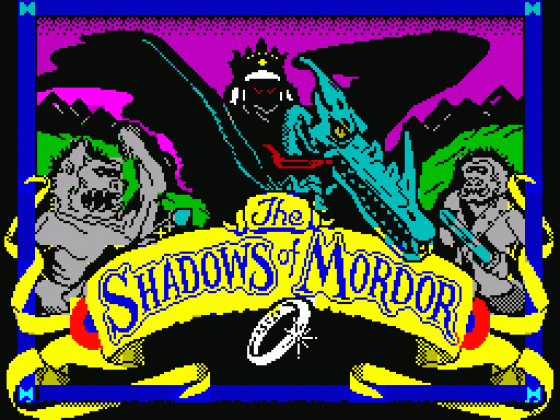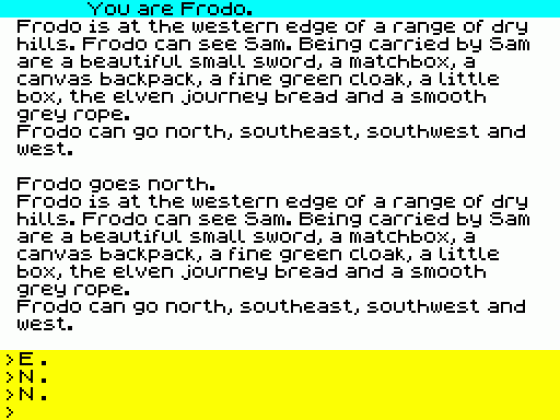Other Reviews Of Shadows of Mordor For The Spectrum 48K/128K
Shadows Of Mordor (Melbourne House)
A review by Mike Gerrard (Your Sinclair)
Shadows Of Mordor (Melbourne House)
Another big adventure release this month, Lord Of The Rings Part II
Shadows Of Mordor (Melbourne House)
A review by Gary Rook (Sinclair User)
Shadows Of Mordor (Melbourne House)
A review
Shadows Of Mordor (Melbourne House)
A review


 1st June 1987
1st June 1987









